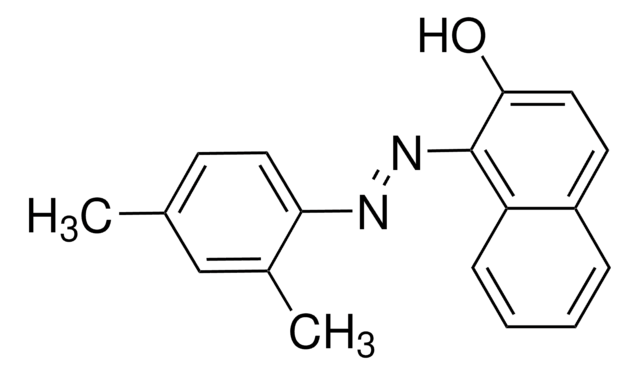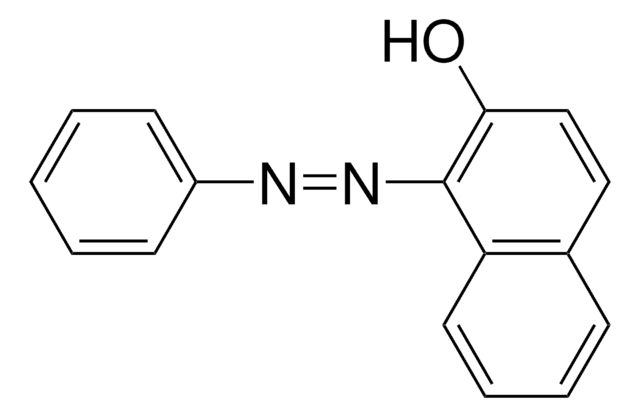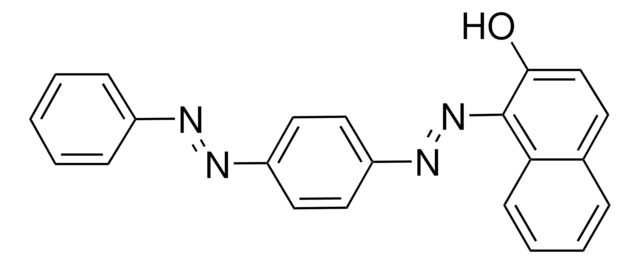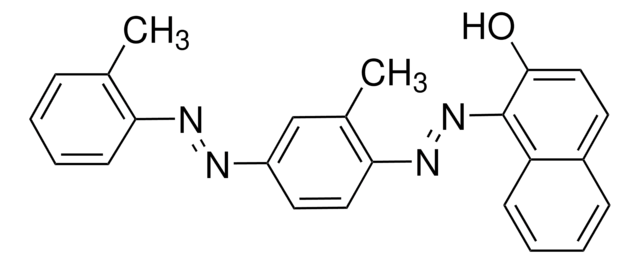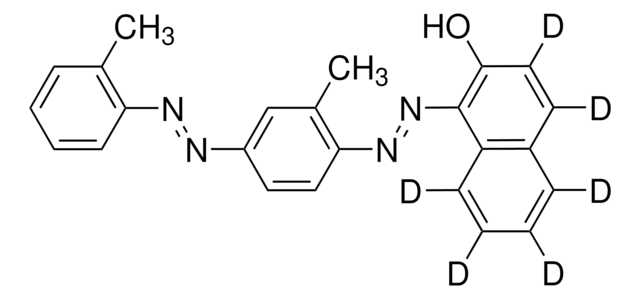51383
Sudan I
analytical standard
Synonym(s):
1-Phenylazo-2-naphthol, Solvent Yellow 14
About This Item
Recommended Products
grade
analytical standard
Quality Level
Assay
≥96.0% (HPLC)
shelf life
limited shelf life, expiry date on the label
technique(s)
HPLC: suitable
gas chromatography (GC): suitable
mp
131-133 °C (lit.)
application(s)
cleaning products
cosmetics
food and beverages
personal care
format
neat
SMILES string
Oc1ccc2ccccc2c1N=Nc3ccccc3
InChI
1S/C16H12N2O/c19-15-11-10-12-6-4-5-9-14(12)16(15)18-17-13-7-2-1-3-8-13/h1-11,19H
InChI key
MRQIXHXHHPWVIL-UHFFFAOYSA-N
Looking for similar products? Visit Product Comparison Guide
Application
Recommended products
Signal Word
Warning
Hazard Statements
Precautionary Statements
Hazard Classifications
Aquatic Chronic 4 - Carc. 2 - Muta. 2 - Skin Sens. 1
Storage Class Code
11 - Combustible Solids
WGK
WGK 2
Flash Point(F)
>554.0 °F - Pensky-Martens closed cup
Flash Point(C)
> 290 °C - Pensky-Martens closed cup
Choose from one of the most recent versions:
Certificates of Analysis (COA)
Don't see the Right Version?
If you require a particular version, you can look up a specific certificate by the Lot or Batch number.
Already Own This Product?
Find documentation for the products that you have recently purchased in the Document Library.
Customers Also Viewed
Our team of scientists has experience in all areas of research including Life Science, Material Science, Chemical Synthesis, Chromatography, Analytical and many others.
Contact Technical Service